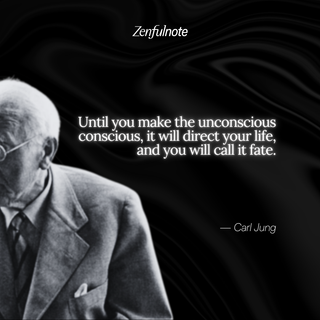Have you ever wondered what lies beneath the surface of your conscious mind? Maybe you’ve found yourself unexpectedly snapping at a loved one or feeling disproportionately upset by a minor inconvenience. This might be starting to sound familiar. That moment when you acted out of character and later apologized with something like, “I’m so sorry, I just wasn’t acting like myself that day…”. These are the parts of yourself you don’t often acknowledge, and because of that, you don’t recognize them when they present themselves in your life. This is your hidden self, often called the shadow, and it holds the key to unlocking deeper self-awareness and personal growth.
"Until you make the unconscious conscious, it will direct your life, and you will call it fate." - Carl Jung
Shadow Work is the process of bringing these hidden aspects of ourselves into the light. It's about exploring the parts of our personality that we typically reject or ignore—the anger, jealousy, fear, and even the unacknowledged talents and strengths. This journey can be daunting, but it is profoundly transformative. And trust me when I say: It is worth it.
The first step in shadow work is acknowledging that everyone has a shadow. It’s not something to be ashamed of; it’s a natural part of being human. Our shadows are formed through our early experiences and societal conditioning. As children, we quickly learn which behaviors and traits are acceptable and which are not. The unacceptable ones are pushed into the unconscious, creating our shadow self.
Facing your shadow requires courage and honesty. It means looking at the parts of yourself that you’d rather keep hidden and asking difficult questions. Questions like:
-
Why do certain situations trigger strong emotional reactions in you?
-
What patterns do you notice in your relationships?
-
What are you afraid to admit about yourself?
-
What do you wish more people knew about you?
These questions can help you uncover the roots of your shadow and begin the process of integration. Integration is kind of an elusive word, so let me clarify here: the goal of shadow work is not about eliminating the shadow but understanding and aiding what it is calling out for. It's like trying to decipher why a baby is upset when they can't fully express what's bothering them. The shadow unleashes its cry when we feel threatened, experience disproportionately strong emotions, and react impulsively to situations that touch deep, unresolved parts of ourselves. When we acknowledge and accept our shadow, we reclaim the energy we've used to keep it hidden. This can lead to a greater sense of wholeness, authenticity, and emotional freedom. By integrating our shadow, we can stop projecting our unresolved issues onto others and start taking responsibility for our own happiness and well-being.
Imagine the freedom of no longer being controlled by unconscious fears and desires. Shadow work allows you to live more fully and authentically. It helps you to understand your motivations and behaviors, making it easier to change patterns that no longer serve you.
One practical way to begin shadow work is through journaling. Set aside time to write about your thoughts and feelings without judgment. Reflect on your past experiences, especially those that were challenging or painful. What emotions come up? What beliefs about yourself and the world were formed during these times? For more shadow work prompts, try The Shadow Work Journal. Journaling can be a powerful hands-on strategy for uncovering and understanding your shadow.
Another powerful method is to track your triggers. When you notice a strong emotional reaction, take a moment to acknowledge it. I recommend using the Zenfulnote app to catch these triggers as they arise in real time. Zenfulnote helps you document and reflect on these moments, offering insights into your shadow self. By tracking and understanding your triggers, you can manage them more mindfully and transform your emotional landscape.
Shadow work is not a quick fix; it’s a lifelong journey. But the rewards are worth the effort. By facing the truth of who you are, both the light and the dark, you can unlock a deeper sense of self and live a more fulfilling life.
So, can you handle the truth? Embrace your shadow, and you may find that the parts of yourself you once feared hold the key to your greatest strengths and deepest joys.


